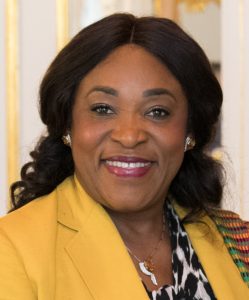Mauritius asks for review of Chagos Islands deal with UK
3 min readMauritius’ new Prime Minister, Navin Ramgoolam, has called for an independent review of the recently negotiated agreement between his country and the United Kingdom concerning the Chagos Islands. The deal, which is still pending finalization, stipulates that the UK would relinquish sovereignty over the Chagos archipelago but retain a 99-year lease on Diego Garcia, the largest island in the archipelago, which houses a significant UK-US military airbase.
Ramgoolam, who assumed office just two weeks ago, made the announcement to the Mauritian parliament, stating that he had requested the review of the deal, and the findings would be presented to his cabinet for consideration. The agreement, which has been the subject of years of negotiations, was hailed as a “seminal moment” in relations between Mauritius and the UK when it was initially discussed. British Prime Minister Keir Starmer and his former Mauritian counterpart, Pravind Jugnauth, both expressed their commitment to resolving disputes peacefully and according to international law when the agreement was first outlined.
However, Ramgoolam’s stance on the agreement differs significantly from that of his predecessor. During his election campaign, Ramgoolam and his Change coalition described the deal as a “sell-out,” accusing the previous government of desperation and compromising Mauritius’ interests in exchange for political gain ahead of the election. The Change coalition has voiced strong opposition, with newly appointed Minister of Agro-Industry and Fisheries, Arvin Boolell, openly criticizing the deal. Boolell specifically took issue with the long lease granted to the UK over Diego Garcia, calling it a 200-year agreement, though the publicly acknowledged duration is 99 years. This extended lease on Diego Garcia has raised concerns, given the island’s strategic importance as a major military base.
Ramgoolam’s objections are not unique. Internationally, there has been significant unease about the deal. In October, Marco Rubio, a prominent figure in US politics and a key ally of President-elect Donald Trump, raised alarms about the agreement. Rubio argued that the arrangement posed a “serious threat” to US national security, as it involved ceding control of the islands to a country with growing ties to China, a geopolitical rival of the United States. The strategic importance of Diego Garcia, particularly in the context of US military operations in the Indo-Pacific region, has made this issue particularly sensitive.
In addition to concerns from political figures like Rubio, several groups representing the interests of the Chagossian people—who were forcibly displaced from the Chagos Islands in the 1960s and 1970s—have voiced their objections to the deal. These groups argue that they were not adequately included in the discussions or negotiations regarding the future of their homeland, raising concerns about the lack of consultation with the communities directly impacted by the decision.
On the British side, Prime Minister Keir Starmer and Foreign Secretary David Lammy have defended the agreement, calling it a “good deal” for both Mauritius and the UK. Lammy expressed confidence that the deal would be viewed favorably by the Mauritian people, stating that it would be seen as a positive step across political lines. He emphasized that the agreement marked a significant milestone in improving relations between the two countries, highlighting the UK’s commitment to addressing longstanding issues related to the Chagos Islands.
The deal, however, remains subject to the finalization of a treaty, and the legal text of the treaty is still being worked on. It is expected that the treaty will be presented for scrutiny by the UK Parliament in the coming year. The review requested by Ramgoolam could delay the signing and ratification of the agreement, depending on the outcomes of the investigation and any potential revisions.
The controversy surrounding the Chagos Islands deal underscores the ongoing tension between Mauritius’ desire to regain sovereignty over the islands and the strategic and military interests of the UK and the US. As the situation evolves, the outcome of the independent review and the ongoing negotiations will have significant implications for the future of the Chagos Islands and the relationship between Mauritius, the UK, and the broader international community.






